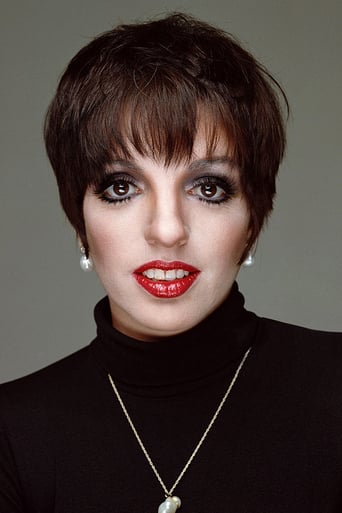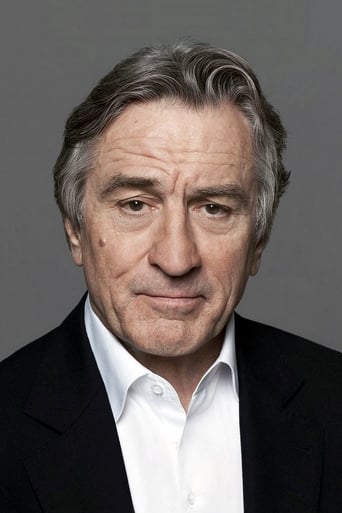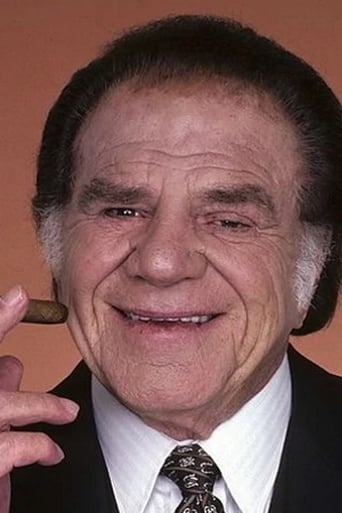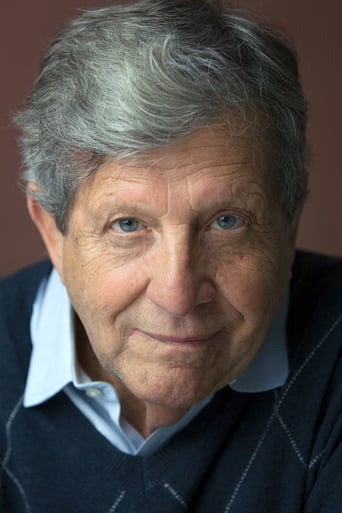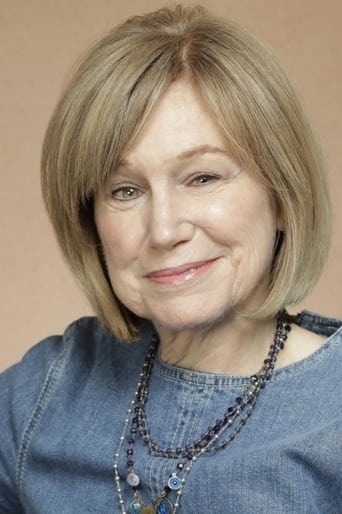Matrixston
Wow! Such a good movie.
Linbeymusol
Wonderful character development!
Matcollis
This Movie Can Only Be Described With One Word.
2hotFeature
one of my absolute favorites!
grantss
OK, but not great. Surprisingly mediocre, at it is a Scorsese-De Niro collaboration.Decent enough story, and the direction is solid. You can see the Scorsese hand in the movie.However, the movie is overly long, at 2 1/2 hours and the plot drifts for long periods. The movie also often seems to be a vehicle to showcase Liza Minnell singing and stage talents, rather than a proper drama. If Scorsese had kept the plot tighter, and moved it along at a faster pace, plus cut down on the musical numbers he would have had a very good (approx) 1 3/4 hour movie.Robert De Niro puts in his usual excellent performance, showing his versatility in terms of the characters he takes on.
Andrew Boone
The first thing that needs to be said about Scorsese's highly underrated "New York, New York" is that it can't possibly be fully appreciated by anyone who hasn't seen films like "An American in Paris" and "Singin' in the Rain". Scorsese's film is very much a pastiche (or parody, depending on your perspective) of these earlier musicals by MGM. The entire formula for the film is based around them. Stylistically attractive visuals, light and witty dialogue, a romance at the center of the story, and a foray into narratively digressive musical territory toward the end of the film. It's all there. This hypotextual reflection of Hollywood's golden age, however, is only half the picture. The other half is that this is very much a Scorsese film, despite many claims to the contrary. Scorsese's hallmarks are all over it. We have Robert De Niro in the lead role, playing an oppressive, dominant alpha male personality type, amplified by a bit of that good old-fashioned Italian-American upbringing that Scorsese knew so well. Harvey Keitel played this character in "Who's That Knocking at My Door" and "Mean Streets" (and even "Alice Doesn't Live Here Anymore", in a lesser role), and now, for "Taxi Driver", "New York, New York", "Raging Bull", and even "Casino", it's De Niro. I've seen nineteen Scorsese films, and this is by far the most cinematographically impressive of them all. The lighting is flawless; the direction exemplary. Scorsese has always been a top talent in terms of his technical skills as a director, but visually, this film is stunning on an entirely different level. The film's aesthetic seeks to mimic the visual attractiveness of those classic Hollywood musicals (Scorsese even gives us a few false backgrounds, just for good measure), and in that way it was very successful. This film is eye candy on a par with Wong Kar-wai's "In the Mood for Love", Korine's "Spring Breakers", Refn's "Only God Forgives", or Fassbinder's "Lola". As for the film's content, about which too little has been written, the entire thematic core of the film is reflected in the casting of its two principal parts: First, we have Robert De Niro, the classic Scorsese casting choice, playing very much the same character we've seen him play in other Scorsese films. On the other end, we have Liza Minnelli, the daughter of none other than Judy Garland, the ultra-famous musical actress of Hollywood's glory days. And Liza's father? Vincente Minelli, director of famous Hollywood musicals like "The Band Wagon", "Gigi", and "An American in Paris". Scorsese throws these two characters together in a violent tempest of passion and suffocating possessiveness. But we, the audience, are also witnessing two worlds being thrown together: De Niro represents Scorsese's world — his vision of a reality steeped in alpha male aggression and hyper-possessiveness over females — and Liza Minnelli, daughter of the golden age of Hollywood, represents that other, make-believe world of American culture — that unique brand of lighthearted escapism and pure cinematic fantasy that Hollywood produced so enticingly in the '30s, '40s, and '50s. Cinematically, we are watching traditional Hollywood fantasy pitted against a vaguely Cassavetes-esque realism.What will happen when these two disparate realities attempt to coexist? Well, Scorsese doesn't offer an outright answer, except to say it will be difficult — extremely difficult. Hollywood fantasy has created in the American mentality a world of misplaced priorities and unrealistic expectations regarding life. When the film begins, Minnelli's character seems to have her life together in a way that few Scorsese characters do (naturally, since she's not from Scorsese's world — she is born of that distant land called Hollywood). And then De Niro enters her life, from the other end of the spectrum, and emotionally shatters her to pieces. And so it's very much a film about the conflict between reality and fantasy. Ultimately, reality obliterates fantasy. The musical detour (the film-within-the-film at the end of the movie) has been the source of a lot of criticism, but once again, no one who's seen "An American in Paris" or "Singin' in the Rain" would be surprised by it. It was a structural necessity if the film was going to accurately echo the formula of those older films, as it clearly intended to do. That being said, I will admit that, at 160+ minutes in length, to abandon over two hours of plot and move into a musical digression so late in the film certainly tests the viewer's patience. There is a moment in this segment, however, that makes it all worthwhile. In this moment, we see movie theater viewers sitting in their seats watching a film, looking straight at us (the camera is placed behind what would be the screen of their theater), and behind them is the projector, casting its image directly at us. And so just as we are sitting in our theater watching them stare at the screen (at us), they are, perhaps, sitting in their theater watching us stare at our screen. And so Scorsese subtly implicates us into the film's themes of fantasy versus reality. Their reality has become our fantasy, and, possibly, our reality has become their fantasy. The final shot of the film is a reference to Gene Kelly's most memorable moment from "Singin' in the Rain". De Niro is in the street. He stands still, propping himself up with an umbrella. The camera pans down to his feet, pausing on them for a moment. The credits roll. We are left to savor the bitter and disenchanting taste of a reality so contrary to the one that Hollywood has offered us. De Niro was standing on a road that could have very well been the same one on which Gene Kelly sung in the rain with his umbrella. But there is no singing here, the umbrella is closed, and those feet aren't dancing. Reality has decimated the Hollywood fantasy.RATING: 8.00 out of 10 stars
lasttimeisaw
Even NEW YORK, NEW YORK is Scorsese's notorious box-office snafu, it is still branded with his undeniable virtuosity of camera compositions and sleek cinematography which can feasibly best most of the films made by his peers in retrospective, the version I watch is a 163-minute re-issue in 1981, it is a veritable ode to the golden era of jazz standards.Along with a chronic but episodic story-telling, our two leads are Francine Evans (Minnelli) and Jimmy Doyle (De Niro), she is a promising lounge singer while he is a saxophone player and they first meet in a party on V-J Day where Jimmy's brazen flirting meets with Francine's feckless cold-shoulder, it is ever a stereotyped gambit to anticipate their romance blossoming although the ill-feeling exuded from a rakish scoundrel ever since Jimmy's very first appearance overtly portends that they' re a misfit match. A more problematic hiccup is Scorsese's unmethodical narrative strategy (with most dialogue impromptu), which meshes with random sappy moments, fails to elucidate what really goes wrong in their rocky relationship, superficially it is just an tiresome story of a poor girl falls for a giant pain-in-the-neck, and Scorsese and his screenwriters merely stick to this surface, as if all they want from viewers is to generate enormous sympathy for Francine and give Jimmy a free pass since he is so charmingly irresistible despite of his horrendous personality. If it has failed to do that in 1977, roughly forty years later, it is still a failure in this regard. Be that as it may, if the love story bores me to death and even comes off as a shade intolerable, the musical numbers have the exactly opposite effects, in addition to a haute couture parade for Ms. Minnelli, her renditions of BUT THE WORLD GOES 'ROUND and the sensational THEME FROM NEW YORK, NEW YORK are timeless earworms and Diahnne Abbott's performance of HONEYSUCKLE ROSE in the Harlem club is irresistibly soothing and enchanting, not to mention a young Mary Kay Place is also a brassy songbird. Albeit the inadequate character setting, Minnelli is the one who offers a positive momentum for the film to roll in the right direction, to be a star under the spotlight one has to make other sacrifices, in some way, it is her version of A STAR IS BORN (1954, 8/10), a homage to her mother's road to fame. Francine may be a dumb chick who inclines to make wrong choices in selecting her man, and too blind to see it, but thankfully, her rationality finally catches up with her in the ending scenes.But the same cannot be referred to Mr. De Niro, whose Jimmy is like a ticking time-bomb ready to go off anytime anywhere, it is not a cinch to establish such an off-putting egomaniac persona, which frankly speaking is quite praiseworthy for his acting chop, but on the other hand, ultimately viewers are prone to a certain perturbation generated by an assumption that all the acting may implicitly betray the thespian's real life temperament. There is also sheer contrast between his perfectly camera-friendly poise and the soused foreheads of his big band members during his show-stopping fanfare, as we have to swallow the fact that De Niro is just faking it whereas Minnelli has the bona-fide artistry.It is plain painful to see Ms. Minnelli's following silver screen career peters out rapidly after the failure of this project, no second chance or whatsoever meanwhile things go more kindly for men and it doesn't stop Scorcese and De Niro from ascending to their apex and maintaining their credibility up to this day.
roddekker
I know that some people consider New York, New York (NYNY, for short) extraordinary. OK. Fine. But, you can bet, Derringer here ain't one of 'em. No way.When NYNY was first released, back in 1977, it was a super-staggering 4 1/2 hours in length. Like, can you just imagine having to tolerate listening to the vocal "talents" of Miss Liza Minnelli for that unendurable period of time? Phew! Now, that would've been pure torture to the 10th power! At present NYNY has a lengthy enough running time of 2 1/2 hours, which, to be sure, is unbearable enough as it is. But still much easier on the eyes, ears, nose, and, yes, stomach, than a super-deadly 4 1/2 hours.Directed by Martin Scorsese (of all people), NYNY may, in fact, be a super-duper, splashy-dashy musical extravaganza alright, but, by the same token, I found its story to be so utterly insipid that it quickly put me off completely even before I realized what was happening.Set in 1945, during the "Big Band Era" - NYNY amounted to being nothing more than a total "rags-to-riches" story with lots'n'lots'n'lots of musical interludes thrown in for good measure.Insufferably arrogant saxophonist, Jimmy Doyle (Robert De Niro), and infuriatingly naive VSO singer, Francine Evans (Liza Minnelli), a couple of typical "nobodies", meet in (where else?) New York on V-J Day at the end of WW2. These 2 bozos end up loving a little, bickering a lot, but most of the time spending their lives apart, just clawing their own way to the top of the heap, as "wannabe" big-time celebrities.This relationship between Jimmy and Francine was so irritatingly strained and rocky at times that it all got real tiresome, real fast.And, how was I feeling after watching this gruelingly-long picture? Well, let me tell ya' - I was certainly not in any "New-York-State-Of-Mind" by the end of it, that's for sure - No way - I mean, it was more like a splitting head-ache state of mind, if you wanna know the truth about it.Uh..... Pass the aspirins, please.



